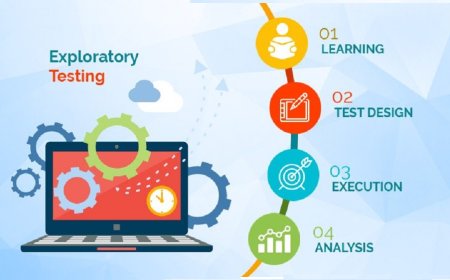Full Body Checkup for Desk Workers & Posture Health

In today's digital era, millions of people spend the majority of their working hours seated at a desk. Whether working from home or in an office, desk workers often face unique health challenges due to prolonged sitting, poor posture, and limited physical activity. Afull body checkup becomes essential for early detection of health issues that may arise from such sedentary lifestyles. Regular evaluations can help identify musculoskeletal strain, metabolic imbalances, and lifestyle-related disorders before they become serious.
The Hidden Risks of Desk Jobs
Desk jobs may seem less physically demanding than manual labor, but they come with their own set of risks. Continuous sitting, especially without proper posture, can lead to chronic back and neck pain, stiffness in joints, and reduced muscle flexibility. Over time, these physical strains can develop into more serious conditions such as herniated discs, cervical spondylosis, or repetitive strain injuries.
In addition to musculoskeletal concerns, sedentary work habits also contribute to lifestyle disorders. Weight gain, poor digestion, fatigue, and reduced cardiovascular fitness are common complaints among desk-bound professionals. Heres where a full body checkup can play a critical role in identifying these issues in their early stages.
How Posture Affects Overall Health
Poor posture doesnt just cause discomfortit has far-reaching effects on various bodily systems. Slouching compresses the lungs, limiting breathing capacity and oxygen intake. It can also affect circulation, digestion, and nerve function. Over time, these factors reduce energy levels and impact productivity.
A full body checkup helps assess the severity of posture-related damage. From spinal alignment to joint health and even respiratory efficiency, medical assessments can provide a clear picture of how posture is impacting overall well-being.
What to Expect in a Full Body Checkup for Desk Workers
A full body checkup tailored for desk workers usually includes a comprehensive evaluation of the musculoskeletal system, vital organ functions, metabolic markers, and mental wellness. Key components of such a checkup include:
-
Orthopedic Evaluation: To assess spinal curvature, joint mobility, and posture alignment.
-
Blood Tests: Including cholesterol, blood sugar, liver and kidney functions to detect early signs of metabolic disorders.
-
Cardiovascular Screening: Especially important for those who engage in minimal physical activity.
-
Vision Test: To check for strain due to prolonged screen time.
-
Mental Health Screening: Since desk jobs can sometimes lead to burnout, stress, or anxiety.
Each full body checkup is an opportunity to understand how your current lifestyle is affecting your health. Early detection allows for timely intervention and lifestyle modification.
Importance of Regular Screening
Many desk workers delay health evaluations because they dont experience immediate symptoms. However, chronic diseases often develop silently and show signs only when they are well advanced. A routine full body checkup serves as a preventive measure, offering insights that can help reverse or manage issues effectively.
Health professionals recommend undergoing a full body checkup at least once a year. For individuals over 35 or those with a family history of diabetes, heart disease, or arthritis, more frequent monitoring may be beneficial.
Small Changes That Make a Big Difference
While a full body checkup provides essential diagnostics, maintaining daily posture health requires consistent effort. Here are a few tips for desk workers to improve posture and overall well-being:
-
Ergonomic Setup: Invest in an adjustable chair, maintain screen at eye level, and keep feet flat on the floor.
-
Take Breaks: Stand or stretch every 3045 minutes to improve blood flow and relieve spinal pressure.
-
Posture Correction Exercises: Include yoga, pilates, or physiotherapist-recommended stretches in your routine.
-
Hydration and Nutrition: Poor posture can sometimes stem from muscle fatigue and dehydrationaddressing these helps.
-
Eye Care: Follow the 20-20-20 ruleevery 20 minutes, look at something 20 feet away for 20 seconds.
When practiced alongside insights gained from a full body checkup, these habits can substantially improve long-term health outcomes.
Conclusion
In the fast-paced, technology-driven work environment, desk workers must take proactive steps to monitor and maintain their health. A full body checkup is not just a medical formalityits a vital tool in preventing chronic diseases, correcting posture-related issues, and enhancing overall quality of life. By identifying potential risks early, a full body checkup empowers individuals to make informed choices, adopt healthier habits, and ensure that their work doesnt come at the cost of their well-being.
Taking time for a full body checkup is a small investment with significant returns. Prioritize it, repeat it regularly, and let it guide you toward a healthier and more active lifeeven while working at a desk.
































